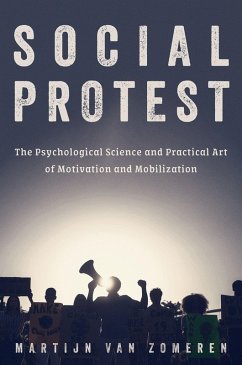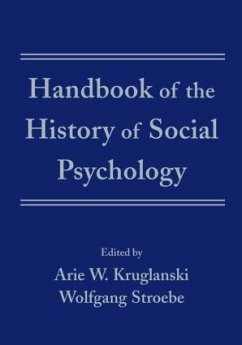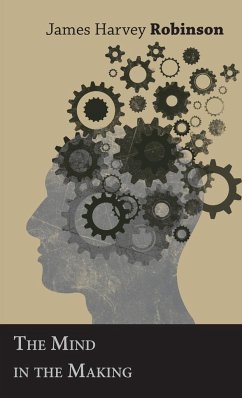
Derek Hook
Broschiertes Buch
Foucault, Psychology and the Analytics of Power
Versandkostenfrei!
Versandfertig in 6-10 Tagen

PAYBACK Punkte
12 °P sammeln!





This book introduces and applies Foucault's key concepts and procedures, specifically for a psychology readership. Drawing on recently published Collège de France lectures, it is useful to those concerned with Foucault's engagement with the 'psy-disciplines' and those interested in the practical application of Foucault's critical research methods.
Derek Hook is a Lecturer in Psychosocial Studies at Birkbeck College, University of London, UK. He is the author of Foucault, Psychology and the Analytics of Power and A Critical Psychology of the Postcolonial . He is a research fellow of the Independent Social Research Foundation and a lead researcher in the Apartheid Archive Project.
Produktdetails
- Critical Theory and Practice in Psychology and the Human Sciences
- Verlag: Palgrave Macmillan / Palgrave Macmillan UK / Springer Palgrave Macmillan
- Artikelnr. des Verlages: 978-0-230-00820-5
- 2007 edition
- Seitenzahl: 301
- Erscheinungstermin: 16. August 2007
- Englisch
- Abmessung: 215mm x 139mm x 22mm
- Gewicht: 440g
- ISBN-13: 9780230008205
- ISBN-10: 0230008208
- Artikelnr.: 29932039
Herstellerkennzeichnung
Libri GmbH
Europaallee 1
36244 Bad Hersfeld
gpsr@libri.de
'Psychology has been flirting with Foucault for almost as long as Foucault flirted with Psychology. Derek Hook's wonderful book explains why critical psychology should properly engage and gives us the tools to do so. Drawing on Foucault's recently available articles, his classic works and psychoanalytic theory, Hook offers major new analyses of spatiality, identity, racism, affective technologies and politicised subjectivities. The line of argument is brilliantly elaborated, bold and clear. Highly recommended.' Margie Wetherell, Professor of Social Psychology, Open University, UK
'This groundbreaking book provides an impassioned argument for Foucault that also locates the work in current debates in social and political theory.
'This groundbreaking book provides an impassioned argument for Foucault that also locates the work in current debates in social and political theory.
Mehr anzeigen
Hook's lucid writing has an urgency that draws the reader into a journey through theoretical debates that also makes them come alive as it addresses key political questions. This book combines elaboration and application in measures that will leave the reader with a thirst for more of the real critical-political Michel Foucault and admiration for an author who has at last shown us how to find him.' - Ian Parker, Professor of Psychology, Discourse Unit, Manchester, UK
'This book is an exercise in theoretical excavation in which Hook develops a series of provocative arguments - developed between Foucault and psychoanalysis - about the operations of power in the production of political subjectivies and affects.' - Professor Kevin Durrheim, Professor of Psychology, University of KwaZulu-Natal, South Africa
'This highly analytical...treatise provides an excellent conceptual foundation and reference for the conduct of Foucaultian research in various areas...the text is written with fluency, logically presented, and its arguments are introduced to readers using vivid language...[it] provides an excellent resource for health care professionals...[and] is an important contribution to critical social science research' -Ari Väänänen, Journal of Health Psychology
'In an age where arguably other critical theorists have superseded Foucault in terms of scholarly attention...Hook's contribution is timely and welcome...it will draw in a wide readership beyond psychology, including sociologists, human geographers and political scientists...I thoroughly enjoyed this excursion into Foucaultian territory, and Hook makes for a perceptive and provocative guide.' - Brendan Gough, British Journal of Sociology
'This exciting new text by Derek Hook represents a much needed elaboration of the application of Foucault's analytics of power for use within the discipline of psychology and the social sciences more broadly...Hook's close reading of Foucault's work demonstrates an in-depth knowledge of what is often a very dense body of work, and as a result he renders Foucault's key ideas in ways that are both highly readable and stimulating. The book will definitely be of interest to those working in thefield of critical race and whiteness studies who are looking to draw upon the work of Foucault to conduct their own research, and will also provide a useful springboard for those wishing to further critique the functions of racialised power, both within Foucault's work and beyond.' - Damien W. Riggs, ACRAWSA
'Derek Hook has undeniably made a valuable contribution...[and] produced a readable, useable text. Whoever reads through these pages will arrive at a more sophisticated, more radical, and potentially more productive engagement with Foucault in psychology.' - Desmond Painter
'Hook gives an unusually rigorous rendering of Foucault's theories. He maintains an idea of the psychological as central to 'technologies of subjectivity and self' and reinstates psychological theory as an important player in research on power and its construction of individuality and subjectivity. He also demonstrates, usefully for that the practical application of this approach to empirical questions is not only feasible, but productive.' Professor Stephen Frosh, Birkbeck College, UK
'Hook's book is erudite, original and important. Most significantly it makes a major contribution to psychology through its engagement with the strengths and weaknesses of Foucault's work, and its commitment to going beyond critiques of psychology's disciplinary power, to champion the value of psychological concepts that help us understand power, subjectivity and social relations in all their complexity.' Professor Rosalind Gill, King's College, UK
'Through his original and provocative engagement with Foucault, Hook sets up an innovative dialogue with thinkers in the fields of sociology, philosophy and social and political theory. He uses Foucault's work as a prism to open up a variety of provocative methodologies to rejuvenate the fields of discourse analysis, the psychology of space-identity and the study of race and racism.' - Professor Catherine Campbell, London School of Economics, UK
'Derek Hook provides a sustained, profound, and deeply insightful reading of Foucualt's work on the "psy" sciences. I enjoyed reading this book and would highly recommend it to anyone interested in grappling with the complex overlapping power dynamics that emanate from the discursive practices of the state through disciplinary power'. - Bradley Kaye, Foucault Studies
'This book is an exercise in theoretical excavation in which Hook develops a series of provocative arguments - developed between Foucault and psychoanalysis - about the operations of power in the production of political subjectivies and affects.' - Professor Kevin Durrheim, Professor of Psychology, University of KwaZulu-Natal, South Africa
'This highly analytical...treatise provides an excellent conceptual foundation and reference for the conduct of Foucaultian research in various areas...the text is written with fluency, logically presented, and its arguments are introduced to readers using vivid language...[it] provides an excellent resource for health care professionals...[and] is an important contribution to critical social science research' -Ari Väänänen, Journal of Health Psychology
'In an age where arguably other critical theorists have superseded Foucault in terms of scholarly attention...Hook's contribution is timely and welcome...it will draw in a wide readership beyond psychology, including sociologists, human geographers and political scientists...I thoroughly enjoyed this excursion into Foucaultian territory, and Hook makes for a perceptive and provocative guide.' - Brendan Gough, British Journal of Sociology
'This exciting new text by Derek Hook represents a much needed elaboration of the application of Foucault's analytics of power for use within the discipline of psychology and the social sciences more broadly...Hook's close reading of Foucault's work demonstrates an in-depth knowledge of what is often a very dense body of work, and as a result he renders Foucault's key ideas in ways that are both highly readable and stimulating. The book will definitely be of interest to those working in thefield of critical race and whiteness studies who are looking to draw upon the work of Foucault to conduct their own research, and will also provide a useful springboard for those wishing to further critique the functions of racialised power, both within Foucault's work and beyond.' - Damien W. Riggs, ACRAWSA
'Derek Hook has undeniably made a valuable contribution...[and] produced a readable, useable text. Whoever reads through these pages will arrive at a more sophisticated, more radical, and potentially more productive engagement with Foucault in psychology.' - Desmond Painter
'Hook gives an unusually rigorous rendering of Foucault's theories. He maintains an idea of the psychological as central to 'technologies of subjectivity and self' and reinstates psychological theory as an important player in research on power and its construction of individuality and subjectivity. He also demonstrates, usefully for that the practical application of this approach to empirical questions is not only feasible, but productive.' Professor Stephen Frosh, Birkbeck College, UK
'Hook's book is erudite, original and important. Most significantly it makes a major contribution to psychology through its engagement with the strengths and weaknesses of Foucault's work, and its commitment to going beyond critiques of psychology's disciplinary power, to champion the value of psychological concepts that help us understand power, subjectivity and social relations in all their complexity.' Professor Rosalind Gill, King's College, UK
'Through his original and provocative engagement with Foucault, Hook sets up an innovative dialogue with thinkers in the fields of sociology, philosophy and social and political theory. He uses Foucault's work as a prism to open up a variety of provocative methodologies to rejuvenate the fields of discourse analysis, the psychology of space-identity and the study of race and racism.' - Professor Catherine Campbell, London School of Economics, UK
'Derek Hook provides a sustained, profound, and deeply insightful reading of Foucualt's work on the "psy" sciences. I enjoyed reading this book and would highly recommend it to anyone interested in grappling with the complex overlapping power dynamics that emanate from the discursive practices of the state through disciplinary power'. - Bradley Kaye, Foucault Studies
Schließen
Für dieses Produkt wurde noch keine Bewertung abgegeben. Wir würden uns sehr freuen, wenn du die erste Bewertung schreibst!
Eine Bewertung schreiben
Eine Bewertung schreiben
Andere Kunden interessierten sich für













